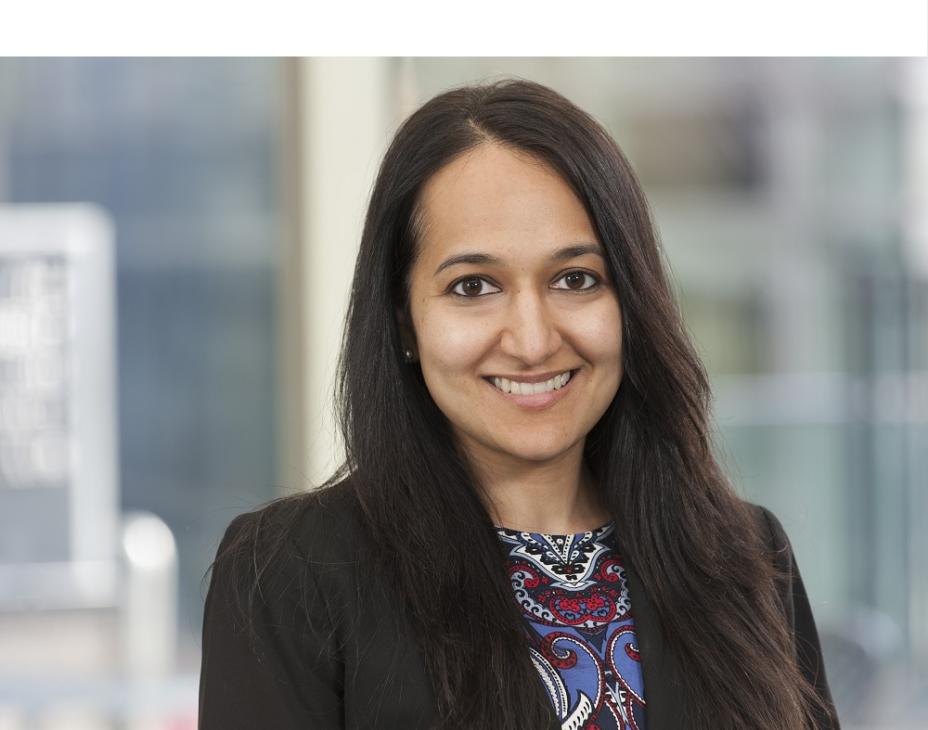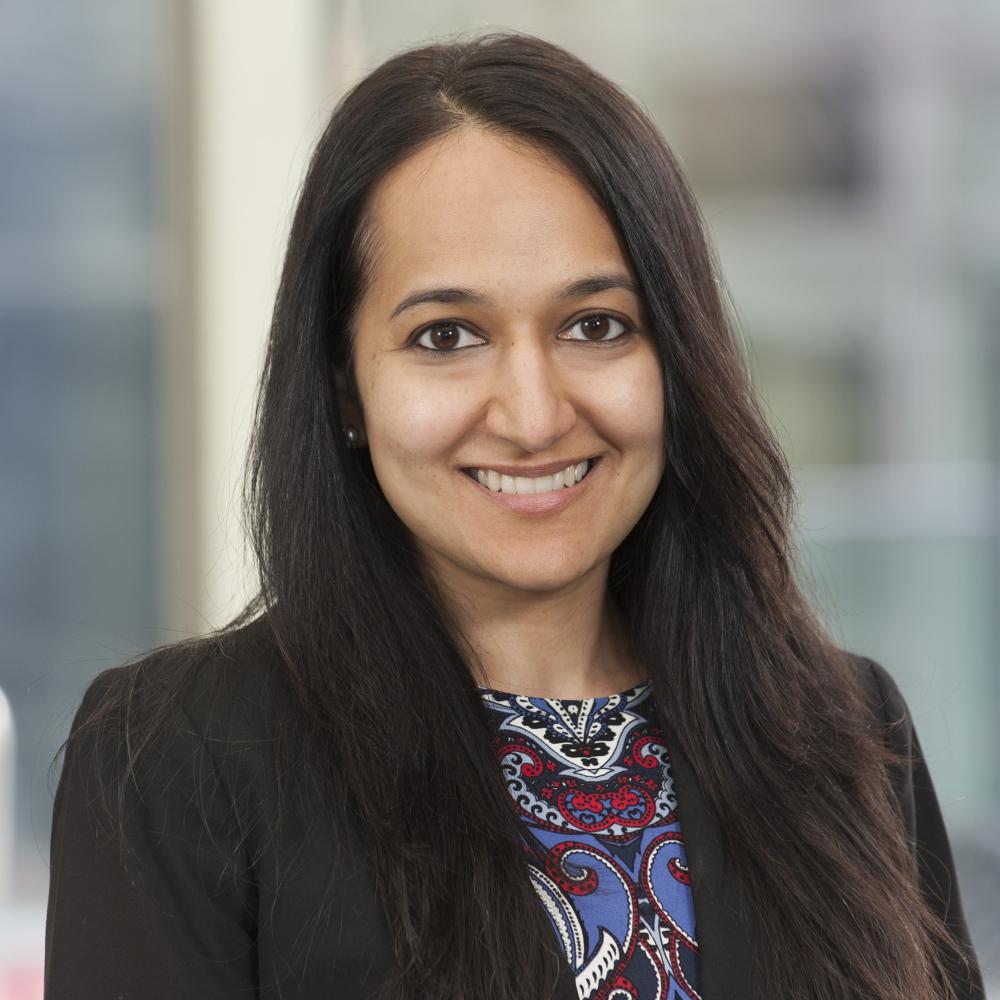These researchers have dedicated their careers to finding new treatments and cures for people with cancer.

Tell us about the research that led to your Conquer Cancer funding.
KM: I wanted to help improve the lives of patients with acute myeloid leukemia (AML). There’s a particular subtype of AML whose biology is well-understood, but targeted therapies for patients are scarce. Under the guidance of my mentors, Dr. Eytan Stein and Dr. Marty Tallman, I wanted to see if we could advance the field through genomic studies and clinical trials. I felt exceptionally fortunate to receive a Conquer Cancer grant so that I could pursue this research. I learned a lot from this work and received the time and space I needed to continue my professional development as a cancer researcher.
Could you tell us about how you ultimately wound up at the White House and what motivated you to pursue this opportunity?
KM: The Conquer Cancer grant provided me with critical early-career funding that allowed me to explore the ways in which I wanted my research career to develop. I had a long-standing interest in public health. From there, I found a way to combine that with my clinical interest in leukemia by studying the intersection of population health and cancer genomics. I began to wonder about other avenues through which I could combine public health and oncology, and that made me think about working with federal health agencies to help drive systemic change at a policy level. This led me to apply to the White House Fellows program, which gives early-career professionals an opportunity to be embedded within the federal government.
Through this program, I now get to work with the Biden administration’s Cancer Moonshot program, which has given me incredible exposure to leadership and public service. The program is a transformational opportunity for the country to work toward ending cancer as we know it by preventing deaths from cancer and supporting patients, families, and caregivers as they navigate their cancer journey.
The Cancer Moonshot initiative is a historic endeavor. What most excites you about this opportunity and what do you hope to accomplish during your time at the White House?
KM: The Biden Cancer Moonshot is working on the prevention, screening, and treatment of cancer while centering on the patient, family, and caregiver experience. Cancer is a national priority, and we must be united in continuing our work to eradicate it. I think the Cancer Moonshot represents a historic opportunity to bring together people working across the government, as well as industry, academia, and advocacy groups. With all these stakeholders at the table, we can integrate a broad set of perspectives on ways to reduce the toll that cancer takes on our society. Together, we will shape the future of cancer prevention, screening, and treatment, and I am excited to play a small role in this enormous, collaborative effort.
You’re not only the first hematologist/medical oncologist selected to this position but also the only the only Indian American among this class of fellows. Does that feel significant to you, and how do you think including your background (both professional and cultural) will benefit the Cancer Moonshot program?
KM: I do hope I am helping to elevate the idea that oncologists should have a seat at the table in informing healthcare policy. The government plays a large role in funding research and care for cancer prevention, screening, and treatment, and oncologists are involved in every part of this. Our daily experience treating and advocating for patients; designing and executing research studies; and dealing with the healthcare system can provide critical insight and perspective in the development of policy that will ultimately improve care for people with cancer.
As the only person of Indian origin in the 2023–2024 class of White House fellows, it has been wonderful to engage with my co-fellows and learn more about their cultures as I share my own. This year’s class is one of the most diverse ever, and learning from each person’s individual perspective has been one of the great joys of being a part of this fellowship. I do hope that other Indian Americans see that there is a place for them within the White House Fellows program, indeed within the federal government, and that there is space for them to contribute their unique perspective.
Can you talk about the impact of Conquer Cancer support? What are some opportunities that receiving that funding made possible for you?
KM: Early funding is critical to the success of junior investigators. Conquer Cancer funding gave me the time and space to think about what my unique research interests were, and to design a career path that fit my research goals. With my Conquer Cancer grant, I found myself thinking about how to go from genomics to population health to public health in oncology. Having protected time allowed me to formally study public health and to contemplate how I could serve the public as an oncologist. The early support from the Conquer Cancer grant set the stage for me to become a White House Fellow and to work with the Biden Cancer Moonshot, and I am so grateful for that early investment in my career as a cancer researcher.
